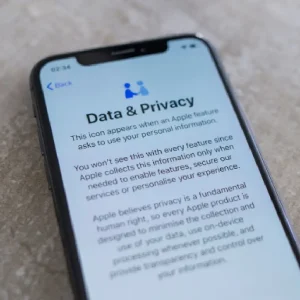
Mobile network operators will be compelled to offer phones open to every network, under new proposals published today by regulator Ofcom — which has also promised industry rules that would make it easier for consumers to switch broadband networks.
That latter proposal would make switching between broadband ISPs on physically separate UK networks easier (e.g. BT to CityFibre) and reflects the new European Electronic Communications Code, which was introduced on December 21, 2018.
The proposals are sharp reminder of the quandary British regulators find themselves in vis-a-vis incoming European directives like the EECD.
Brexit-Inspired Regulatory Uncertainty (Still)
 As Ofcom notes: “There remains some uncertainty over the UK’s future relationship with the European Union. Ofcom takes no view on the means or merits of Brexit.
As Ofcom notes: “There remains some uncertainty over the UK’s future relationship with the European Union. Ofcom takes no view on the means or merits of Brexit.
“However, we need to consult now on our proposals to introduce the new protections in the EECC.
“This will enable us to change our rules before the deadline for transposition of the EECC Directive of 21 December 2020 and still allow UK providers sufficient time to implement those changes by then, should the requirement to transpose Directives still apply to the UK at that time.”
Ofcom Broadband Proposals Come as a Rise in Alternative Fibre Providers is Shaking Up the Market
While switching ISP’s on OpenReach’s national copper network is not hugely onerous for businesses, a rise in new network platforms and full fibre providers like Cityfibre, Hyperoptic and Gigaclear has caused some challenges: both for customers looking to switch provider, and to the existing regulatory regime.
Ofcom’s broadband proposals aim to tackle the issue for customers of downtime resulting from manual cancellations. Customers wanting to switch physical networks still needing to order a new service, contact the old ISP to cancel the outgoing one and hope the two companies’ respective teams can manage to get the work done without too great an overlap during which they have no service.
See also: BT Opts for Open Source 5G Core
(Existing regulated processes for switching within the Openreach and KCOM
fixed copper networks are already in line with the EECC Ofcom believes.)
But (without the European policy intervention) “there are currently no regulated processes in place for customers switching between providers on different fixed networks, or providers of full-fibre services”, as the regulator noted today.
The Office of the Telecommunications Adjudicator (OTA) has been coordinating an industry working group to develop detailed process specifications for switching fixed services for residential customers in the meanwhile.
When it comes to mobile networks meanwhile, companies including BT/EE, Tesco Mobile and Vodafone still sell mobile phones that cannot be used on other networks unless they are unlocked. Ofcom said the shift would “allow people to move to a different network with their existing handset, hassle-free.”
The mobile proposal follows regulations, introduced in July, that means mobile customers can switch operator by sending a text message.
A Three spokesperson told Computer Business Review with regard to the MNO proposals: “We don’t believe that there should be any barriers to switching mobile provider. That’s why we have supplied all our handsets unlocked at the point of sale since 2014. We welcome Ofcom’s preferred proposal to ensure that all operators sell unlocked handsets, ending a practice that three quarters of consumers find unfair.
“However, there is no technical reason for a 12-month implementation period and urge them to bring their timetable forward, so that consumers can benefit from simpler switching in 2020.”
Read this: Canonical Guns for a Bigger Slice of the Telco Pie, with Charmed OSM






